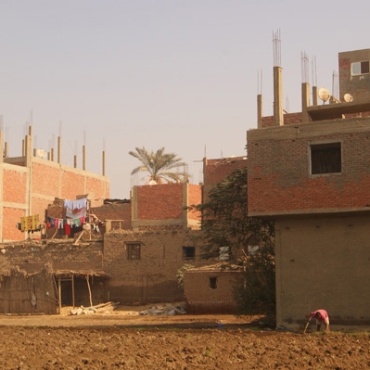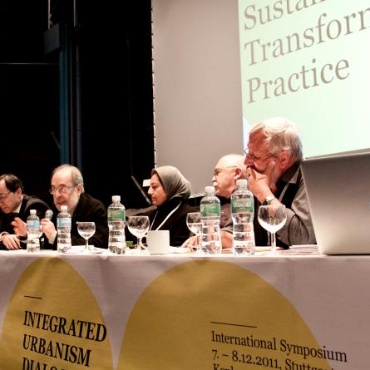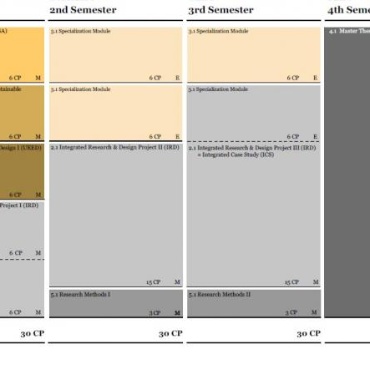
Mission Statement
It is open to graduates and young professionals from the fields of architecture, urban planning, landscape architecture and regional planning as well as to graduates with other Bachelor degrees and with relevant professional experience. Our philosophy is based on transnational learning exchange between students with different regional backgrounds applied to a specific urban reality. Our joint IUSD Lab´s experiential learning hubs are based in Egypt (IUSD Lab Cairo) and Germany (IUSD Lab Stuttgart) and embedded into a network of international partner institutions and universities around the world.
Teaching at both universities is based on interdisciplinary teamwork and on site-specific projects in cooperation with local communities and with different stakeholders, organizations and institutions, locally and internationally. IUSD students acquire reflective and practical skills to develop integrated and transdisciplinary solutions for planning, managing and designing landscapes, cities and buildings.
The IUSD program has been jointly developed and established since 2011 by the two partner universities University of Stuttgart and Ain Shams University, Cairo. The double-degree program with the first year in Stuttgart University and the second year at Ain Shams University in Cairo serves as its backbone and is supported by the German Academic Exchange Service (DAAD) through the program “Development-Related Postgraduate Courses”. The double-degree program is supported by a high-profile advisory board and by various German, Egyptian and international organizations, including UNHabitat, GIZ (Deutsche Gesellschaft für Internationale Zusammenarbeit GmbH), and CEDARE (Centre for Environment and Development for the Arab Region and Europe). These partnerships offer IUSD students numerous opportunities to test and develop skills in challenging and complex applied contexts.
Starting in 2016, both universities also offer the IUSD as a single degree program in both locations, with different study and exchange opportunities.
Program objectives
Students will be equipped with conceptual and practical tools to develop holistic (rather than purely technology-oriented) approaches towards sustainable urban planning — combining environmental and social approaches to urban transformation. The program will provide access to a wide range of advanced expertise in the fields of participatory planning and building, energy-efficient construction, integrated aspects of landscape and infrastructure planning, urban management and governance. It will thus enable students to combine principles of ecology-oriented science and engineering with a social approach to the design of urban landscapes and buildings, and to urban and regional planning. This degree also provides eligibility to register for PhD programs in Egypt, Germany and the rest of Europe.
Teaching Philosophy
The teaching philosophy of the program seeks to provide the students with support and guidance in expanding their individual expertise in the field of "Integrated Urbanism and Sustainable Design" while at the same time learning to work on complex, practice-based case-studies in interdisciplinary teams. The students come from a range of professional backgrounds and are expected to already have a degree and work experience. The program does not seek to award a professional degree in architecture/ urban planning or engineering. It aims to equip the students with the necessary practical and conceptual skills to develop holistic, interdisciplinary, collaborative and innovative approaches to sustainable urbanism and design – and to apply this knowledge to practical tasks in order to solve complex problems in a collaborative way. To promote critical thinking and the ability to bring several people "to the table", students are trained to become generalists with a specialty" with the ability to link engineering considerations with architectural, environmental, and socio-economic approaches to sustainable shaping and management of man-made environments, navigating the complexities of the field and exploring their interrelationships and mutual dependencies. As the program progresses, the teaching methods shift from a more theoretical approach to the study of concepts and tools to practical application of the acquired knowledge and tools to the design tasks. The teaching methodology combines:
1) Knowledge-based learning
Students will acquire a broad understanding of the various facets of Integrated Urbanism and Sustainable Design, learning to relate environmental knowledge, technical expertise, design competence and socio-cultural awareness (compulsory core modules) and expand their individual expertise by specializing in specific topics selected according to their varying pre-qualifications and personal learning goals. Building up on the compulsory core modules, students will use their electives to pursue a specific track (specialization modules). Students are encouraged and given guidance to develop a track, which will strengthen their analytic skills, broaden their intellectual outlook, and test their acquired insight in real-world applications. The program also strives to nurture intellectual independence, self-reliance and personal growth.
2) Application-based learning
Students will learn to apply their knowledge to practical tasks of varying complexity in an interdisciplinary hands-on learning environment based on the design approach (Integrated Research and Design/ Integrated Case Study Studios). In the second semester they will refine the acquired skills working on an integrated research and design project on different scales in small student groups. In the third semester they will complete a large case-study project. The application-based learning approach is closely linked to the course’s partner institutions and enables the students to develop close relationships with them. Thus, students are encouraged to be an active part of project development and decision-making processes.
3) Learning outcome and prospects/career options
Program graduates will be equipped to work in international organizations, in national and local governments and urban agencies, non-profit agencies, non-governmental organizations and planning/ design companies. They will also be prepared for academic careers and be well positioned for PhDs and international research projects.







